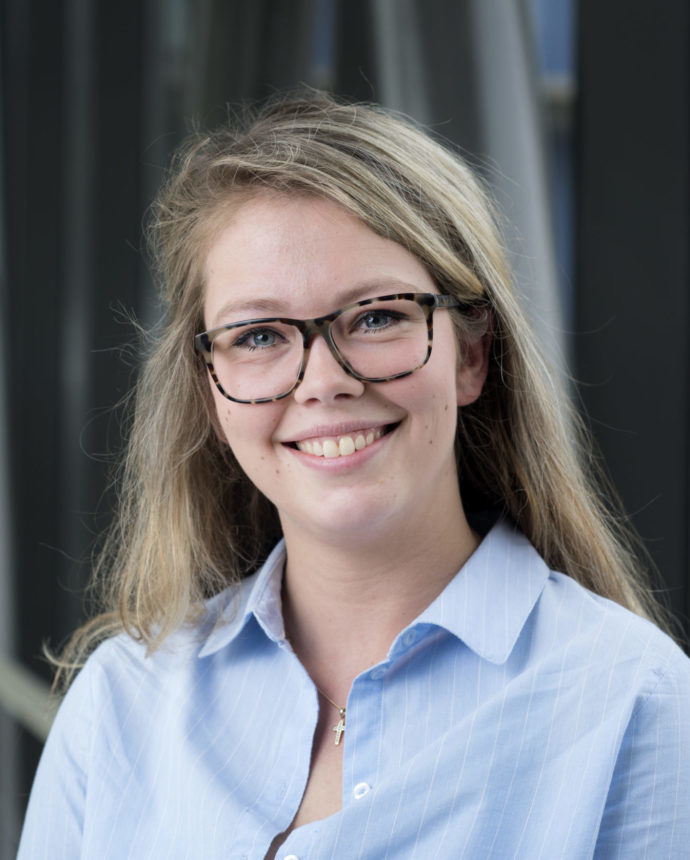
dr. ir. Margo Tuerlings
Postdoctoral Researcher
Margo Tuerlings (born 1992) began her PhD research in August 2018 at the Department of Molecular Epidemiology at Leiden University Medical Center (LUMC).
She obtained her Bachelor’s degree in Medical Sciences and Technology and her Master’s degree in Biomedical Engineering from Eindhoven University of Technology (TU/e). She completed her first master’s internship at the MicroSystems group (TU/e) and the Department of Molecular Epidemiology (LUMC). During this research, she developed and optimized a joint-on-a-chip model system that can be used for functional research in the future. She presented this project idea at the annual meeting of human Organ and Disease Model Technologies (hDMT), where she was awarded the “Best hDMT Organ-on-Chip Showcase” prize.
During her PhD research, she investigated the complex interaction between cartilage and bone in osteoarthritis, using a wide range of methods, ranging from genetics, transcriptomics, and epigenetics to biomarkers, therapeutics, and the further development and validation of the joint-on-a-chip model. In 2023, Margo obtained her PhD with honors for her dissertation “The bone and cartilage interplay in osteoarthritis: key to effective treatment strategy” In 2024, she was awarded the LUMC Prize for the best dissertation in the “non-clinical” category and the Bertus Kemp Prize for the best dissertation in connective tissue research (2022–2023).
Since June 2022, she has been working as a postdoctoral fellow in the Department of Molecular Epidemiology. Within the RegMed4D consortium (Erasmus MC, TU Delft, and LUMC), she focused on optimizing the joint-on-a-chip for the use of human induced pluripotent stem cells (hiPSCs). Subsequently, within the multidisciplinary LOAD consortium—in which academic partners, industry, and patient organizations collaborate to investigate the effects of mechanical loading on arthritic joints and develop strategies to maintain mobility and quality of life—she focused on the use of CRISPR-Cas9 to study mutations in hiPSC-derived cartilage and their response to mechanical loading.
